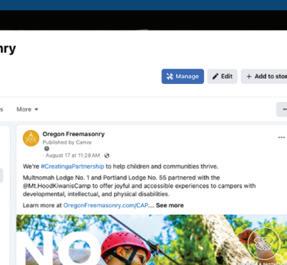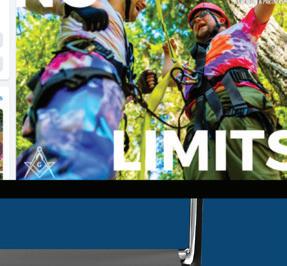


































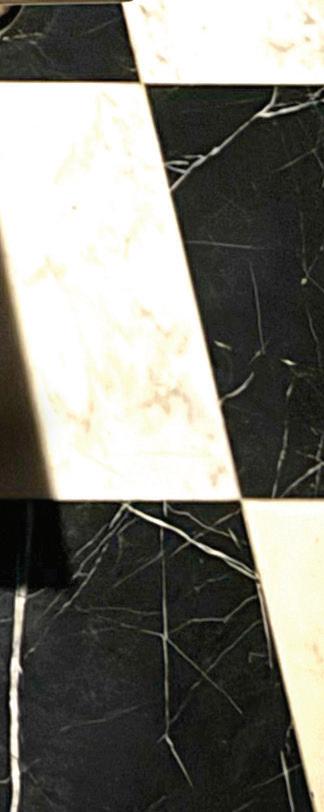



2025
EXECUTIVE EDITOR
Grand Secretary, James L. Morgan, P.G.M.
EDITOR
Holly Darling
CONTRIBUTORS
Timothy J. Best
John J. Lohrfink
Richard D. Varner
Dale B. Palileo
Jason D. Edmiston
TO CHANGE DELIVERY OPTIONS
Login to or.grandview.systems to edit your communication preferences
CONTACT US info@oregonfreemasonry.com 503.357.3158 www.oregonfreemasonry.com






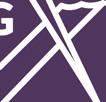



















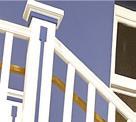













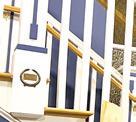
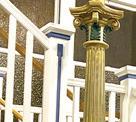





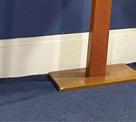
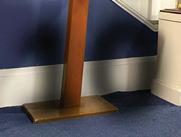

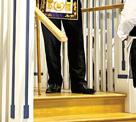

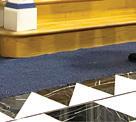





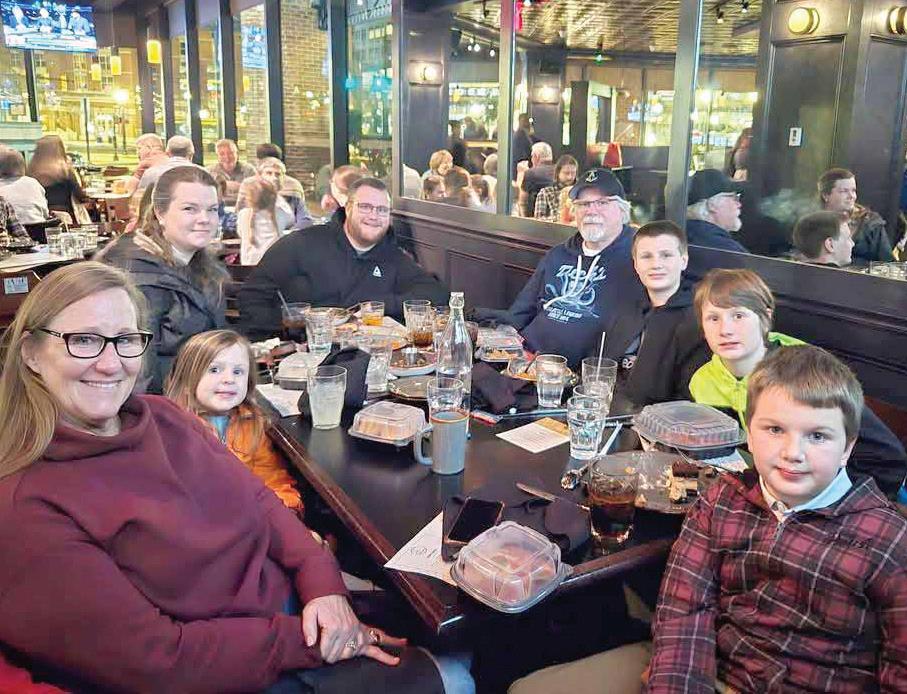


April is a month of remembrance and renewal. As spring awakens the earth, we take time to reflect on the past and look forward to new beginnings.
Maundy Thursday offers a time to reflect on service and to honor our Brethren who have passed to the Celestial Lodge, that house not made with hands. Easter, for myself and other Christians, is a celebration of the resurrection of Christ—a testament to faith, hope, and the promise of new life. And with the arrival of spring, we all witness the world around us coming back to life, a powerful symbol of renewal and growth that speaks to people of all beliefs.
As we embrace this season, let us also reflect on the obligations we took upon ourselves when we knelt at the altar of Freemasonry. One meaningful way to honor those commitments is through charitable giving. The Grand Lodge website makes it easy to make a difference—whether by setting up a one-time donation or, as I do, establishing a monthly contribution to the Oregon Masonic Charitable Foundation (OMCF) or the Home Endowment Fund. Both are 501(c)(3)s, making donations tax-deductible while directly benefiting our Masonic family and communities. A monthly donation is a simple, effortless way to give back—you set it up once, and it continues automatically, making a lasting impact with minimal effort. Not only can individuals contribute, but Lodges can also establish recurring donations, reinforcing our collective commitment to charity and Brotherhood.
Together, we can continue to serve the Craft , Every Day!
Sincerely and Fraternally,

Timothy J. Best Grand Master 2024-2025

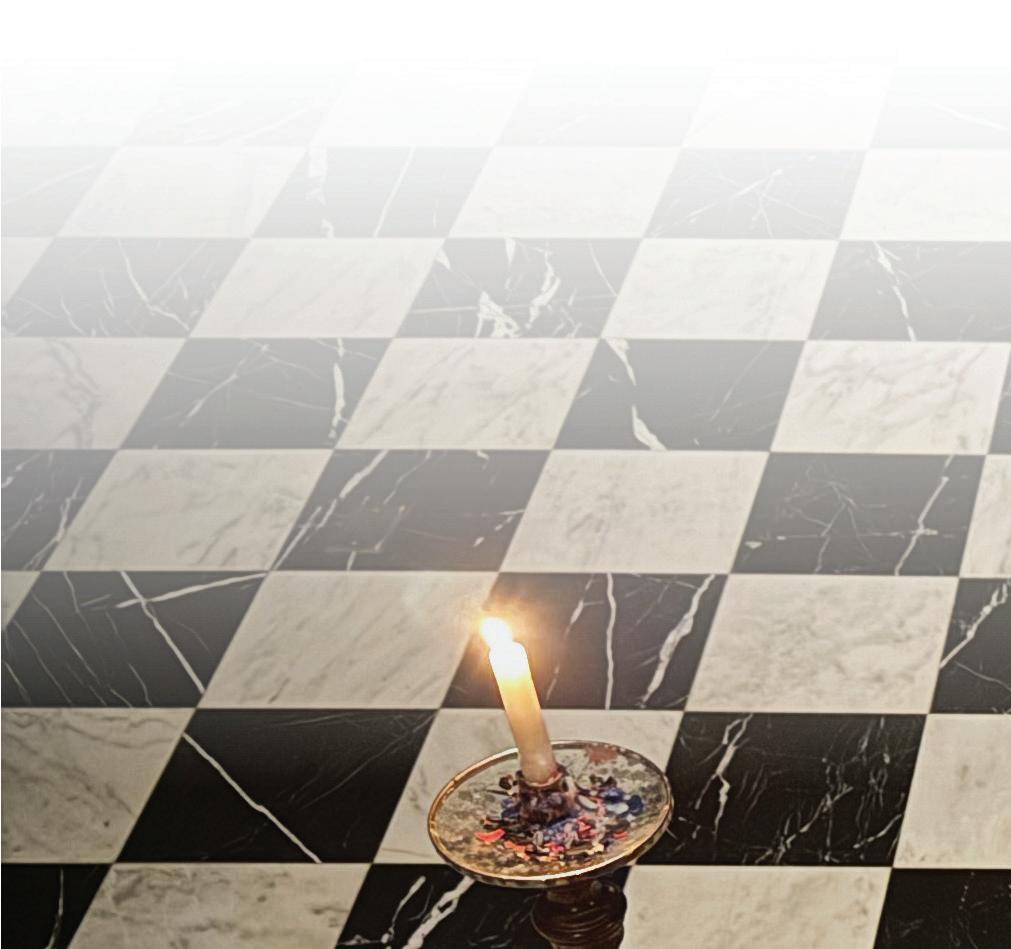
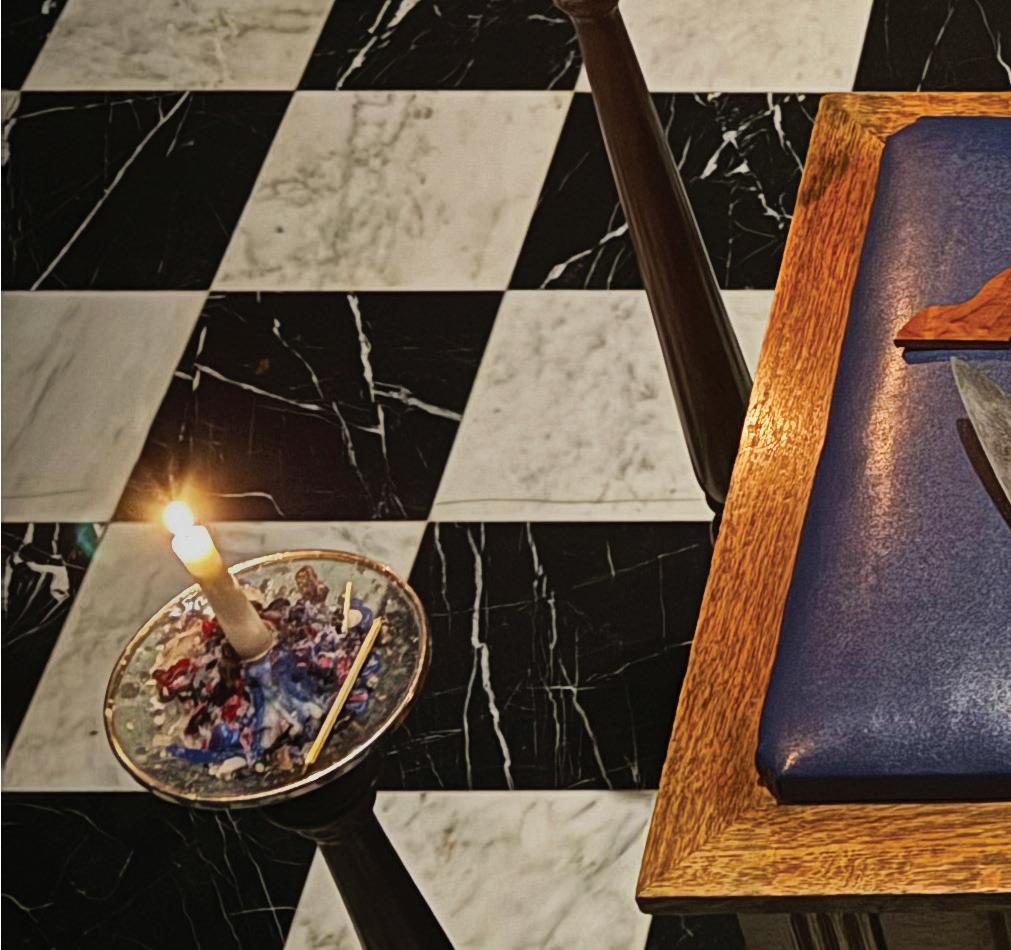

By W.B. John J. Lohr nk, Grand Orator
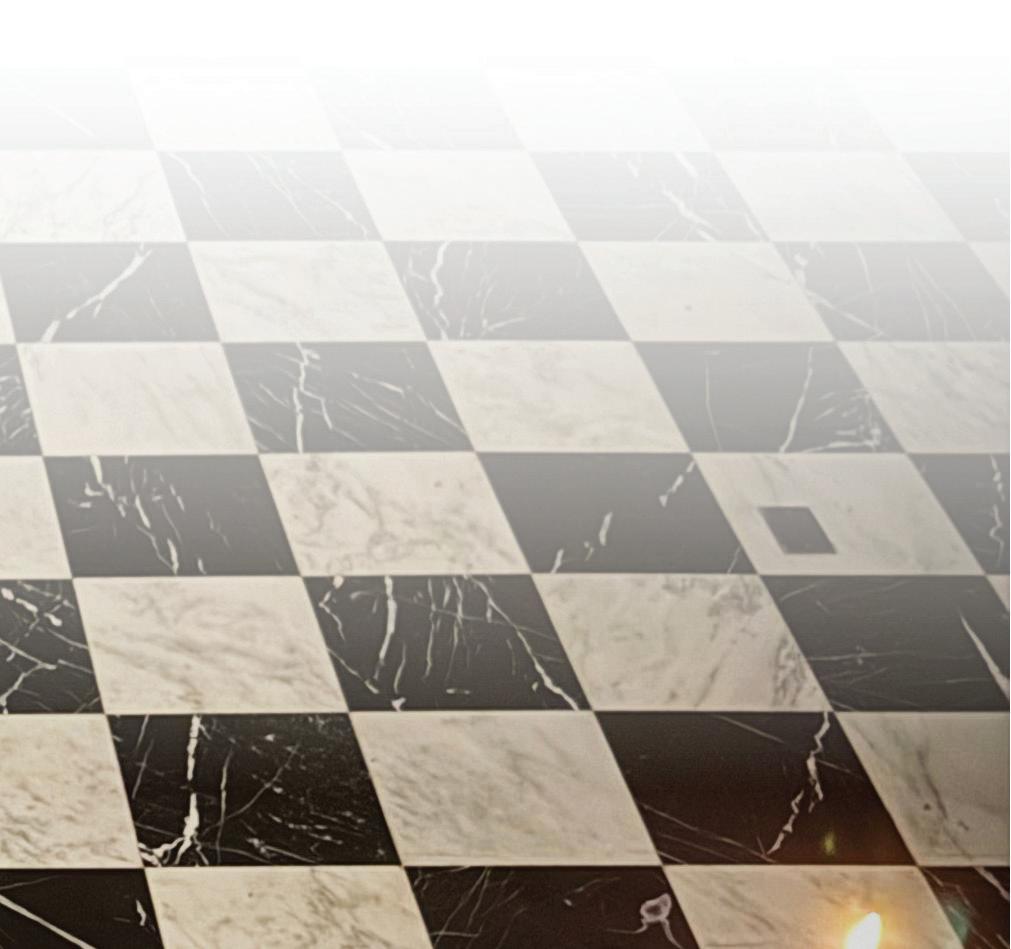
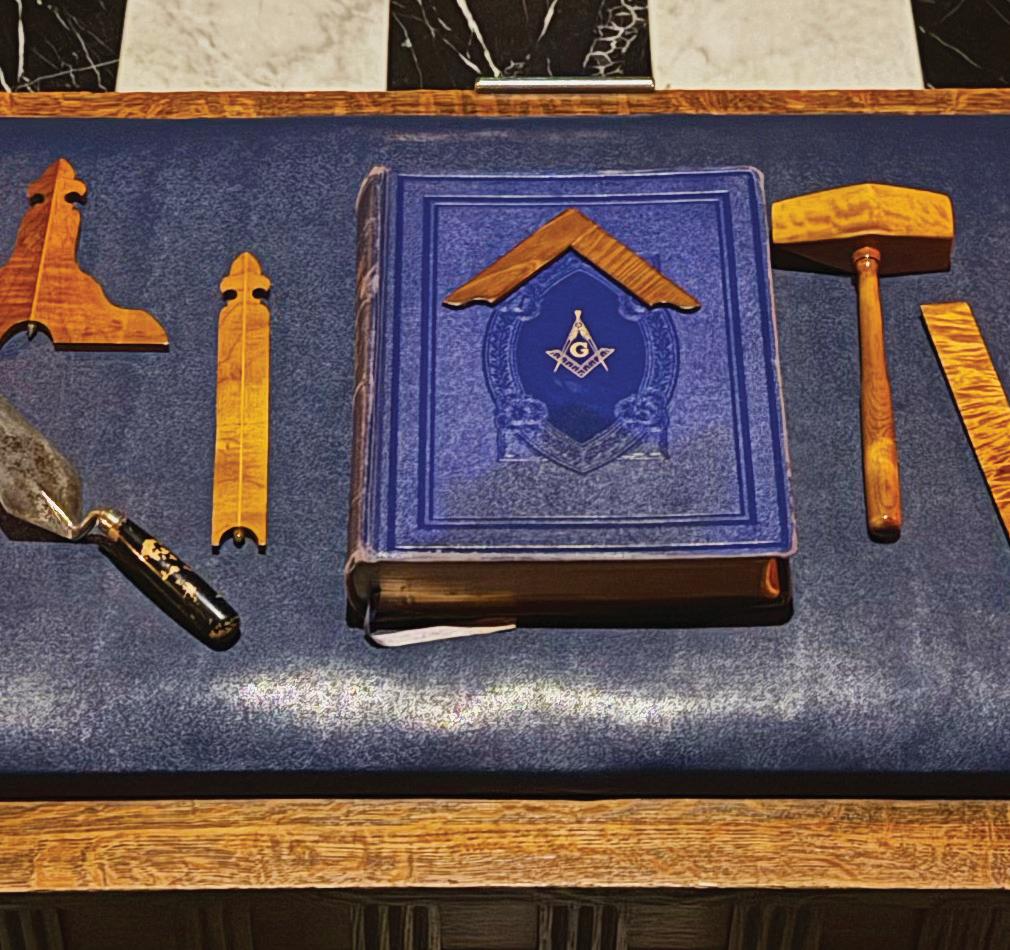



In today’s fast-paced and often chaotic world, the significance of being ethical and civil to others cannot be overstated. Every day presents us with unique and countless opportunities to embody these values, not only for our own benefit, but also for the betterment of those around us. The teachings of Freemasonry were erected around these tenets and are further exemplified through the four cardinal virtues of temperance, fortitude, prudence, and justice. Furthermore, living our lives to the fullest potential necessitates balancing our mental, physical, social, and spiritual well-being while simultaneously striving for success without shortcuts, as everything in life is connected.
Success and well-being in these four areas evolve over a man’s lifespan and sometimes require a greater focus and emphasis on a specific area. Nonetheless, constant monitoring and the occasional rebalancing effect must occur to maintain an equilibrium in one’s life. Achieving this equilibrium is essential, allowing us to harmonize life’s complexities – with gratitude, purpose, and continuous self-reflection. Central to this virtuous journey also lies the principle of servant leadership, which underscores the importance of uplifting others as we pursue our own goals and aspirations. It is encouraged that this article be read both from an introspective viewpoint and an extrospective viewpoint, specifically of how living the principles of an upright man and Mason apply to others in your life. Consequently, sculpting and enriching our hearts and minds to become better men –every day.
At the core of ethical living is the commitment to treat others with dignity and respect. The principle of rectitude of conduct resonates deeply with Freemasonry’s moral teachings; these lessons advocate squaring our actions through integrity, providing compassion for others through service and charity, and keeping our passions within due bounds toward all mankind. Temperance, fortitude, prudence, and justice become the four cornerstones of our character’s structure. Exercising temperance demands personal restraint and our conduct to be regulated. Fortitude calls for inner strength and a steady purpose of one’s mind. Prudence helps us use reason and control our actions, and justice is the moral boundary of righteousness that supports a civil society. These cardinal
virtues remind us that our actions deeply reflect on our character and influence the lives of those we encounter.
When we approach each interaction with an ethical mindset, we contribute to a culture of civility that fosters trust and cooperation in society. Th is is how we build trust with new candidates and foster everlasting relationships with our Brothers in the fraternity. As a result, this trust and Brotherly Love is the cement that bonds individuals from all walks of life, all for the common purpose of being a better man.
Being ethical is not a one-time decision; it is a daily practice – it must take place every day for the best results. Like lifting weights to build muscle or brushing your teeth to keep them white, living an ethical lifestyle requires daily attention to detail, dedication to achieving the desired results, and a constant honing of your ethical performance. Daily self-reflection requires mindfulness and a commitment to making choices that align with the above foundational values. As a result, one can embrace the allegorical teachings of Freemasonry and allow these lessons to light each challenging pathway of life.
By being aware of our actions, we can also create an environment around us where everyone feels valued and respected. As a result, this nurtures positive relationships and encourages collaboration, which is essential for personal and communal success. Th is holds true not only in our own households with our loved ones but also when interacting with our Brothers in Lodge and others in society.
The geometric pattern of Metatron’s Cube exemplifies how everything in life is interconnected. Specifically, the pattern of thirteen circles linked by lines denotes balance, harmony, and spiritual growth. Further examining interconnectedness, one must embrace ethical living and focus on holistic well-being. Balancing our mental, physical, social, and spiritual health is crucial for living life to the fullest.
Mental well-being requires us to cultivate a mindset of positivity, resilience, continuous learning, and self-reflection. Engaging in activities that challenge our intellect and foster creativity can enhance our mental capacity and enable us to contribute more effectively to society. Possessing strong emotional intelligence and maintaining a positive mindset influences how we shape our worldview and respond to various situations in life. A positive mindset also affects how we build interpersonal connections and cope with traumatic
incidents in life, such as the death of a loved one. Expanding on this example, one can develop mental resilience and use post-traumatic growth (PTG) principles to transform oneself following a tragic event, gaining a greater appreciation of life and using their experience to help others.
Physical health is equally important. Regular exercise, a balanced diet, attending routine medical exams, and achieving adequate rest are essential to a healthy lifestyle. Caring for our bodies increases our capacity to engage others, pursue goals, and overcome obstacles. Many men develop barriers to their overall physical well-being throughout their lifespan – this may be related to injuries, weight, or other health-related issues. Nevertheless, this is where we circle back to the importance of having a strong and resilient mindset. Our mental well-being empowers individuals to break down barriers to our physical health and be present and active participants with our family and friends, including our Masonic family.
Cultivating strong social ties and maintaining healthy relationships are essential for emotional resilience and happiness. This is often a large part of why many men join Freemasonry.
Our social health also plays a crucial role in our overall well-being. Cultivating strong social ties and maintaining healthy relationships are essential for emotional resilience and happiness. is is o en a large part of why many men join Freemasonry. Many men seek camaraderie and are searching for a common bond akin to team sports, the military, and other fraternal and civic organizations. Engaging with others, whether through family, a professional relationship, Blue Lodge or appendant bodies, or those in the community, fosters a sense of belonging and support. In particular, and as previously mentioned, Freemasonry helps to cement a bond of trust and brotherly love based on a shared fraternal obligation. Furthermore, our fraternal principles champion making good men better – much of this occurs through the exceptional individuals we meet and labor with in Freemasonry. Building a network of positive relationships allows us to share our experiences, o er assistance, and receive encouragement when facing life’s challenges. No man should be ashamed of various hardships in life and is encouraged to reach out to their brothers during these times
of need. Many others have experienced hardships with family and personal relationships, educational advancement or employment-related issues, nancial struggles, personal and familial addictions, and health complications for themself or a loved one. Others may be experiencing, or previously experienced, a similar struggle, and various resources are o en available through di erent Masonic Aid programs. A robust social network can also enhance a sense of purpose and ful llment, reminding us that we are not alone in our journey. Finally, our faith or spiritual self provides a more profound sense of purpose and connection. When tasked with balancing life’s responsibilities, many men overlook spiritual health in the hustle and bustle of their daily lives. Whether through meditation, prayer, or re ection, nurturing our spiritual side helps us align and square our actions with our core values. is alignment fosters compassion and empathy, which are vital in our interactions with others. By cultivating a strong sense of spiritual self and purpose, we become more adept at li ing others up, and conducting them toward their own spiritual growth and success.
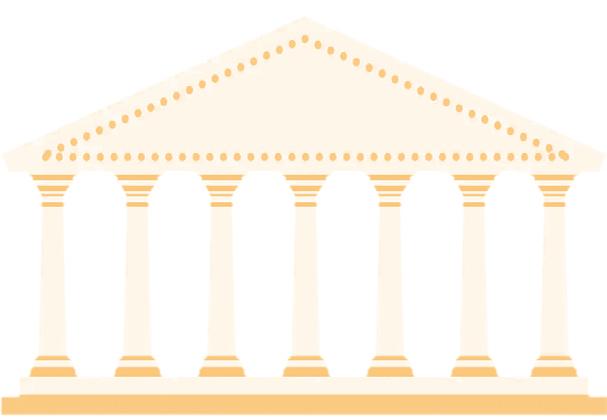
Servant leadership is a philosophy that champions the idea of leading by serving others. is concept is deeply rooted in the belief that true success is not measured solely by personal achievements but by the positive impact we have on those around us. As we strive for our own goals, we must also seek to empower others to reach theirs.
Engaging in servant leadership requires a shi in perspective and a strong moral character. It is a paradigm that involves recognizing that our accomplishments are
intertwined with the success of others. When we adopt this mindset, we become more attuned to the needs of our family, colleagues, brothers, friends, and community. We can help others overcome challenges and achieve their goals and aspirations by o ering support, encouragement, and charity through compassion. is collaborative approach enhances our collective success and enriches our lives with meaningful connections.
Many men think of servant leadership as it applies to their professional role; however, it applies to much more. Servant leadership is an everyday approach to all social relationships, including family, friends, brothers, and the community. I encourage everyone to consider and explore how the principles of servant leadership can signi cantly improve the health of their Lodge and the fraternity as a whole. Servant leadership subsequently supports the principal tenets of brotherly love, relief, and truth.
Freemasonry teaches the importance of a moral compass, an internal guide that aids in directing our decisions and actions toward all mankind. is compass is strengthened by compassion and charity toward others. When people view the world through the lens of empathy, we become more aware of the struggles and triumphs of those around us. is awareness allows us to act with kindness and understanding, fostering a sense of community and belonging, all based on our values of ethics, integrity, and respect for others.
A good moral compass and personal drive propels us toward success. It reminds us that our journey is not solely
about individual achievements but about contributing to the greater good of society. As Albert Pike wrote, “What we have done for ourselves alone dies with us; what we have done for others and the world remains and is immortal.” As we pursue our personal goals in various stages of life, we should ask ourselves how our actions and underlying faith can bene t others. is self-re ection helps ensure that our success as men and Masons is meaningful and leaves a lasting impact.
Being ethical and civil to others is a fundamental aspect of living a ful lling life, and the teachings of Freemasonry were constructed around these sacred beliefs. By balancing our mental, physical, social, and spiritual well-being and embracing the overarching principles of servant leadership, we can create a positive ripple e ect around us. Speci cally, as Masons, we are taught to divide our time into three parts: a part for God and a distressed worthy brother, a part for our usual vocation, and a part for refreshment and sleep. Furthermore, as we pursue personal success and growth, let us ever remember that true ful llment comes from upli ing those around us and staying true to the four cornerstones of our character. Guided by a strong moral compass, faith, and compassion for others, together, we can navigate our life’s journey as men and Masons with integrity, ensuring our legacy is one of kindness, support, and shared success. In doing so, we live our lives to the fullest, sculpting ourselves into that smooth ashlar and inspiring others to do the same – Every day.
Metatron’s Cube is a powerful sacred geometric gure associated with balance, creation, and divine connection. It consists of 13 interconnected circles, forming a complex pattern that contains all ve Platonic solids— shapes considered the building blocks of the universe. Named a er the archangel Metatron, this symbol represents the ow of energy throughout the cosmos and is o en used in meditation and spiritual practices to promote harmony and enlightenment. Found in ancient mystical traditions, Metatron’s Cube is believed to encode the fundamental patterns of existence, bridging science and spirituality in a visual representation of universal order.















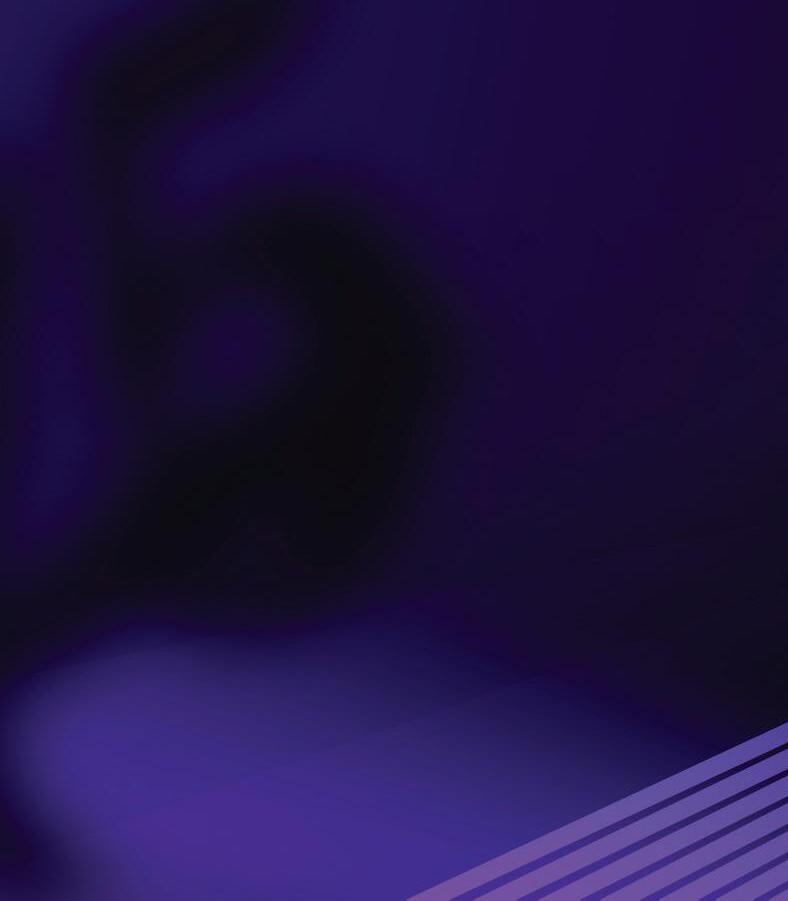
WEDNESDAY, JUNE 4, 2025
PGM & Ladies Lunch
hosted by MasonicAid (By invitation only, casual attire)
11:30 a.m. - 1:00 p.m.
Check-in
2:00 p.m. - 5:00 p.m.
Grand Master’s Banquet
(By invitation only, formal attire)
6:00 p.m. – No-host Social Hour 7:00 p.m. – Dinner
THURSDAY, JUNE 5, 2025
6:30 a.m. – Breakfast
Check-in
7:30 a.m.
Morning Session
7:45 a.m. – Musical Prelude
8:00 a.m. – Informal Opening (All Invited)
10:00 a.m. – Formal Grand Lodge Opening
10:15 a.m. – Load bus for Ladies’ Oregon Coast Aquarium & Lunch; departure at 10:30 a.m. (dress for the weather)
11:00 a.m. – Ballot Opened 12:00 p.m. – Call to Refreshment
Fellowship Luncheon 12:00 p.m.
Afternoon Session
1:00 p.m. – Call to Order 4:00 p.m. – Call to Refreshment

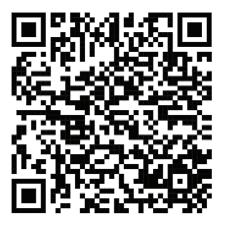
M.W. Grand Master, Timothy J. Best, invites all Master Masons, their spouse, and guests to attend the 175th Annual Communication of the Grand Lodge of A.F. & A.M. of Oregon. Tentative Agenda
Fellowship Banquet (All Invited, casual attire) “Rockin' the Night Away”
6:00 p.m. – No-host Social Hour 7:00 p.m. – Dinner
FRIDAY, JUNE 6, 2025
6:30 a.m. – Breakfast
Check-in
8:00 a.m.
Morning Session
7:45 a.m. – Musical Prelude

8:00 a.m. – Call to Order 11:00 a.m. – Ballot Closed 11:30 a.m. – Ladies’ Luncheon (Casual attire) 11:45 a.m. – Election Results Announced 12:00 p.m. – Call to Refreshment
Fellowship Luncheon 12:00 p.m.
Afternoon Session
1:00 p.m. – Call to Order Time TBD – Ritual Closing
Installation of 2025-2026 Officers (All Invited) 4:00 p.m. – Reception to Follow
Banquets
PGMs, PGM’s Ladies, New Officers (Three separate banquets. By invitation only. Formal attire)
6:00 p.m. – No-host Social Hour 7:00 p.m. – Dinner





For room reservations, you may call Chinook Winds Casino Resort Hotel at (877) 423-2241 or visit the Grand Lodge website www.OregonFreemasonry.com/ Annual-Communication. You will fi nd information about accommodations and a link to take you directly to Chinook Winds Casino Resort Hotel’s special page to make room reservations for this event. There you can select your room type, as well as see the amenities and cost. If calling, be sure to inform them you are with the Masonic Grand Lodge group. Room availability is fi rst come, fi rst served. To receive the group rates, you must make your reservations by Sunday, May 11, 2025. Additional accomodations can be found at the Holiday Inn. Chinook Winds Casino Resort Hotel will provide shuttle services between hotels.
On Thursday, June 5, the Grand Master’s Lady has arranged a bus tour to the Oregon Coast Aquarium. Boarding will begin at 10:15 a.m., depart at 10:30 a.m., and return around 3:00 p.m. Lunch at Rogue Brewery with assorted cookies. The Ladies “Treasured Time Together” themed Luncheon is Friday, June 6 from 11:30 a.m. to 1:30 p.m.
Casual dress attire.
For those ladies not attending either of these ladies’ events, you are welcome to join the men during the Thursday and/or Friday Fellowship Luncheons.



THURSDAY, JUNE 5
To make your meal selections online, visit www.OregonFreemasonry.com/ Annual-Communication
Meal tickets will not be sold at the door. Refunds unavailable to those unable to attend.
Oregon Grand Lodge Officers, District Deputies of the Grand Master, and visiting dignitaries will be sent a letter with instructions for signing up for meals online. Please do not use form below. If you are NOT an Oregon Grand Lodge Officer, District Deputy, or visiting Dignitary, and not ordering online, please complete and return the form below.
Ticket(s) for Sunrise Buffet Break fast at $25 each
Ticket(s) for Fellowship Luncheon at $30 each


Reserved tickets for all meals will be provided in a packet and available for pickup at the registration (open various hours, shown at le ), so be sure your meal ticket order reaches the Grand Lodge office no later than Saturday, May 17!
Please return form to 2150 Masonic Way, Forest Grove, OR 97116 Please enclose a check or money order made out to e Grand Lodge of Oregon.
Ticket(s) for Ladies Luncheon & Oregon Coast Aquarium Tour at $45 each
$ Hazelnut Salad with Vinaigrette Clam Chowder with Bread
Ticket(s) for Fellowship Banquet at $45 each
FRIDAY, JUNE 6
Ticket(s) for Sunrise Buffet Breakfas t at $25 each
Ticket(s) for Fellowship Luncheon at $30 each
Ticket(s) for Ladies Luncheon at $30 each

YOUR NAME
PHONE #
YOUR LODGE NAME
YOUR OFFICER POSITION (IF APPLICABLE)
SPOUSE NAME (IF APPLICABLE)



By R.W.B. Richard D. Varner, Senior Grand Warden
Each February, Freemasons from across North America—and even beyond—gather to exchange ideas, strengthen the bonds of brotherhood, and discuss the future of the Fraternity. The conference location changes yearly, whether it’s snowy Wisconsin, rainy Seattle, or sunny South Carolina, but one thing remains constant: the enduring fellowship among Masons.
This year, Myrtle Beach, SC, presented its own set of travel challenges. With winter storms disrupting flights nationwide and limited options for reaching the destination, 750 attendees demonstrated remarkable adaptability as they navigated last-minute changes to their travel plans.
Among the many insightful sessions,
two stood out to me. The first was a presentation on Scottish Rite Northern Masonic Jurisdiction’s decade-long efforts in market research and public outreach. Their “Not Just a Man. A Mason.” campaign continues to thrive, and data confirms that public perception of Freemasonry remains highly favorable. Even when Lodges struggle to engage prospects effectively, interest in the fraternity remains strong. The second session focused on the legal foundations of Grand Lodges and the fiduciary responsibilities of Grand Officers and Trustees. Robert Roth, General Counsel for the Grand Lodge of Wisconsin, provided real-world examples illustrating why Grand Lodge Trustees must exercise due diligence before making decisions.
Other breakout sessions catered to specific leadership roles. Deputy Grand Masters participated in a session led by Illustrious Brother Jim D. Cole, Grand Commander of the Southern Jurisdiction of the Scottish Rite, while Senior and Junior Grand Wardens attended a discussion moderated by Illustrious Brother Walter Wheeler, Grand Commander of the Northern Masonic Jurisdiction. These gatherings, along with informal networking opportunities such as jurisdictional luncheons, provided invaluable chances to exchange ideas, share best practices, and build relationships that strengthen Freemasonry as a whole.
Meanwhile, Grand Secretaries held their own meetings, delving into the administrative challenges of
managing day-to-day operations within their jurisdictions.
M.W.B. Timothy J. Best played a key role in this year’s event, serving on the Planning Committee and being elected to the Board of the George Washington National Masonic Memorial. He also participated in a panel discussion on Oregon’s “Classroom of the Month” program. M.W.B. Michael J. McGuyer, P.G.M. attended as a Board Member of the National Masonic Foundation for Children.
Leading up to the larger conference, the Western Conference of Grand Lodges held its annual meeting, bringing together jurisdictions from the western United States, Canada, and Mexico in a more intimate setting. A highlight of this gathering was the Junior Grand Wardens’ presentations on key initiatives within their respective Grand Jurisdictions. Of particular interest to Oregon was California’s discussion on updates to their Lodge officer training programs—timely information as an ad hoc committee in Oregon is currently working on revamping our own leadership education. Additionally, the Western Conference welcomed the Grand Lodge of Alberta as a new member, further strengthening the collaboration among western jurisdictions.
As always, this annual gathering reaffi rmed the unity, dedication, and shared purpose of Freemasons across North America. Th rough education, discussion, and fellowship, we continue to build upon the strong foundation of our fraternity and prepare for the challenges and opportunities ahead.
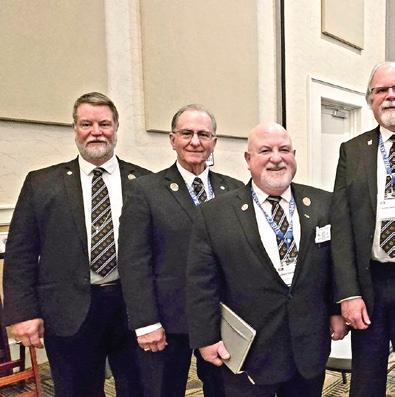




Education Showcasing Oregon’s Classroom of the Month Program
At the Conference of Grand Masters of North America in Myrtle Beach, South Carolina, I had the distinct honor of presenting the Grand Lodge of Oregon’s Classroom of the Month program to fellow Masonic leaders. This initiative, a partnership with Fox 12, recognizes outstanding classrooms and educators, reinforcing the Masonic commitment to education and community service.
During the Community Charity Panel, representatives from various Grand Lodges shared their impactful programs. California showcased its Masons for Mitt s partnership with Major League Baseball, Wisconsin highlighted its Fire Suppression program for first responders, and Michigan presented its Bikes for Books initiative.
When it was my turn to speak, I introduced the Classroom of the Month program, explaining how it works and sharing a video segment featuring a recent presentation with the local Lodge in Tillamook. The response was overwhelmingly positive, sparking interest from several Grand Lodges eager to explore similar educational initiatives in their jurisdictions.
Opportunities like this remind us of the power of Freemasonry—not just in supporting our communities, but in sharing and inspiring one another. By exchanging ideas, we strengthen our collective impact, ensuring that our traditions of charity and service remain strong. Every day!
- M.W.B. Timothy J. Best Grand Master 2024-2025

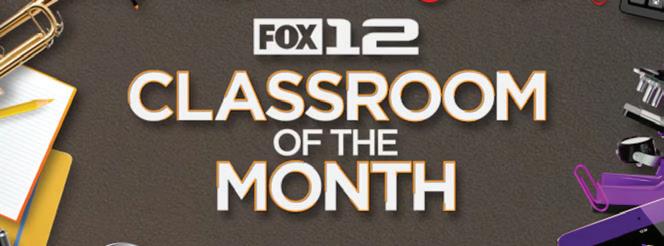
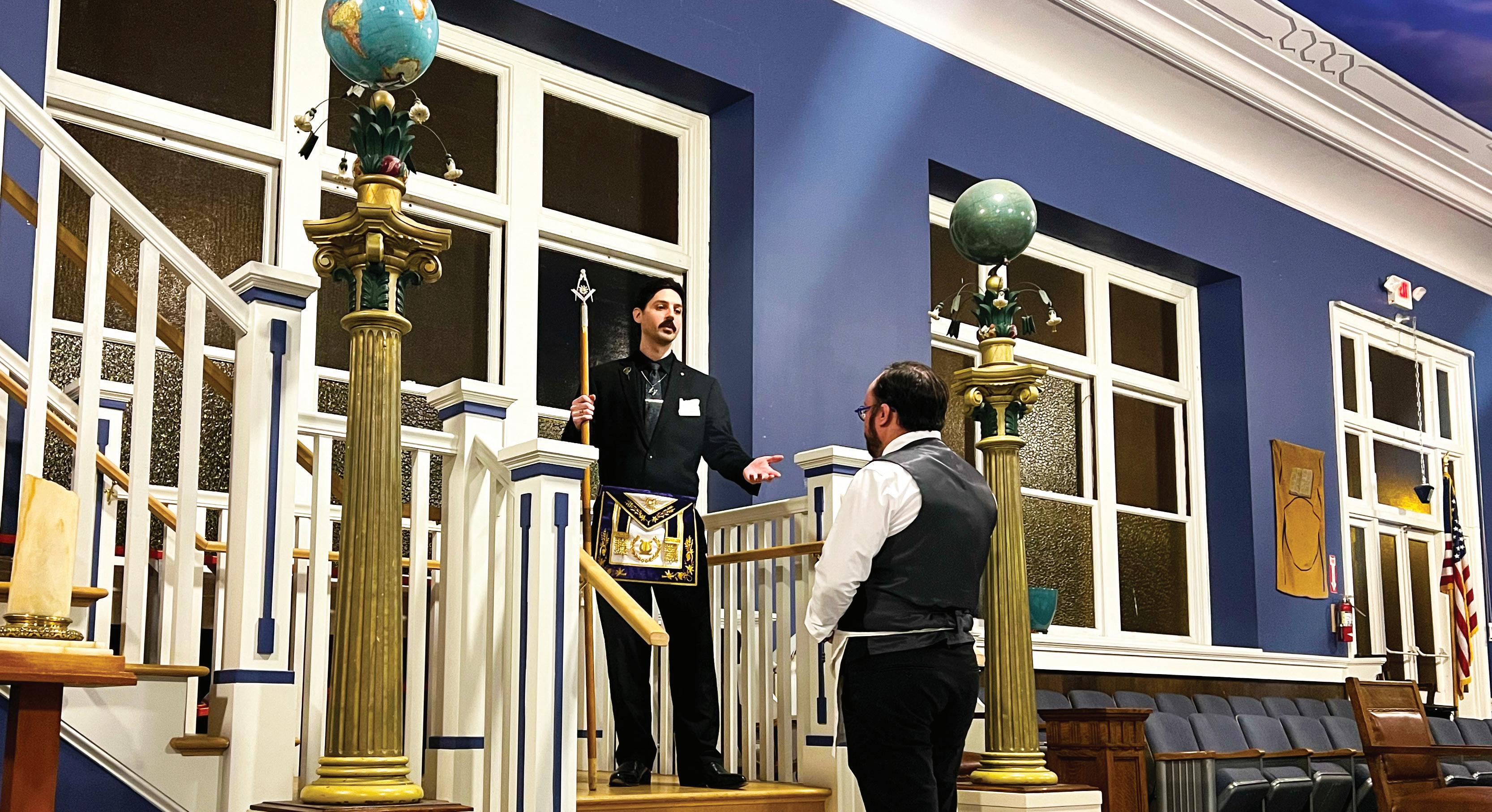
By W.B. Dale B. Palileo, Grand Lecturer
Throughout my travels inside and outside our jurisdiction, I’ve seen a lot of degree conferrals in a variety of execution quality. Some renditions definitely need practice, while others are so well polished that it left me feeling inspired and happy not only for the candidate but for the Lodge as well.
Regardless of the quality, one thing stands out: there’s always a Brother or two (and sometimes three) that take the show and make the degree better with their presence, not because they demand the attention, but because they have earned the attention by performing at a level that is precise, inspiring, and shows mastery of the work.
What makes these Brothers provide an impressionable performance?
Regardless of Lodge or jurisdiction, I found that highquality ritual performances from these Brothers have a few common traits—elements that make them great ritualists. Some may have a background in theater or are great at public speaking. However, it’s interesting to note that oftentimes these Brothers are just “regular Joes” that have mastered their
craft for the benefit of the Lodge and the Brothers that pass through their hallowed halls.
Even more interesting is that these traits can be replicated by anyone who is willing to do the work. In this article, we’ll be exploring these traits and what you can do to become a better ritualist.
To become a truly exceptional ritualist, you must rise above the mechanics of ritual work. This means moving beyond mere memorization to a state where your delivery feels effortless and natural. Achieving this level of proficiency requires dedicated, consistent practice. The goal is not just to remember the words but to embody them—to transform the ritual from something you recite into something you perform with grace and confidence.
The old adage, “Practice makes perfect,” rings true in this context. Repetition builds muscle memory, allowing both your words and movements to flow with precision.
When your performance becomes second nature, it frees your mind to focus on the deeper meaning of the ritual and the connection you are creating with the candidate and the brethren present. This state of mastery enables you to adapt seamlessly to the moment, whether it means adjusting your pace, adding a thoughtful pause, or offering a reassuring hand on the candidate’s shoulder to enhance the impact of your words.
Too often, I’ve seen Brothers rush through their parts as if speed equates to proficiency. But ritual isn’t a race—it's a performance with a purpose. When the meaning is lost, so is the impact. To become a truly effective ritualist, focus not only on what you say but on how you say it. Experiment with diction, pacing, gestures, and pauses to ensure your words are not just heard but felt.
The key is to deliver your lines in a way that resonates with your audience. Practice speaking with intention, allowing the meaning of your words to unfold naturally. When delivering a lecture, consider walking the candidate around the Lodge room, pointing out key elements as you speak. A simple gesture like shaking the candidate’s hand can reinforce the significance of the grips and words, adding a tangible layer to the ritual.
Ritual is as much about connection as it is about instruction. Small, thoughtful gestures can deepen this connection. During a lecture or the charge, gently placing your hand on the candidate’s shoulder can amplify your words, conveying sincerity, support, and Brotherly connection. This transforms the lecture from a mere recitation into a personal experience, making the candidate feel not only involved but truly embraced by the Craft.
A good ritualist not only memorizes the words but understands the meaning behind them. Delivering ritual with impact requires more than recitation—it demands conveying the lessons and symbolism to the candidate through meaningful words and deliberate actions. To do this effectively, you must first cultivate a deep understanding of our symbols and the “gems of wisdom” hidden between the lines of our written and ciphered ritual.
The ritual is filled with layers of meaning. At first glance, the words may seem straightforward, but beneath the surface lies a rich tapestry of allegory and symbolism. Each movement, gesture, and phrase is designed to impart a lesson—not only to the candidate but to all who witness the ritual. The more you study the lectures, the better
equipped you will be to draw out these lessons and present them in a way that resonates on a deeper level.
I encourage you to take the time to explore the lectures and their symbolism. Reflect on their teachings and consider how they apply to both Masonry and life outside the Lodge room. When you speak with understanding, it shines through in your delivery. It allows you to transform ritual work from a mere formality into a living, breathing experience that can inspire and enlighten everyone present.
Mastering Masonic ritual isn’t something that happens overnight. Exceptional ritualists understand that achieving true proficiency requires time, patience, and a commitment to continuous growth. They see the journey of ritual work as an integral part of their overall Masonic experience; one that unfolds over months or even years.
Setting and achieving ritual goals should be a part of every great ritualist’s journey. These goals serve not only as milestones of progress but also as markers of a fulfilling Masonic experience. Working toward a new role, mastering a specific lecture, or earning a proficiency card provides a sense of purpose and accomplishment that enhances your connection to the Craft.
To stay on course, great ritualists set slow but steady goals that build upon the last. They might challenge themselves to perform a particular role a set number of times before moving on, or to explore a new aspect of ritual work. These milestones offer both a sense of progress and a reminder that excellence is achieved incrementally.
Setting progressive goals keeps you motivated and engaged. It prevents stagnation and encourages you to delve deeper into the work, adding layers to your foundational understanding. Every new part learned, every new experience gained, enriches your perspective and sharpens your skills—not just as a ritualist but as a Mason.
When you view your ritual work as a journey with clear, attainable milestones, it becomes more than just a task to complete. It transforms into a lifelong pursuit, where each step forward enhances your ability to bring our ritual to life with meaning and intent, making your Masonic journey more rewarding and complete.
Becoming a great ritualist is a journey of dedication, reflection, and heart. It requires more than just learning words and movements—it demands a commitment to excellence and a desire to elevate the experience for every candidate and Brother present. Strive for mastery, push your limits, and let your ritual work become a shining example of what our Craft represents. Your efforts will not only enrich your own Masonic journey but will also inspire those who follow in your footsteps.
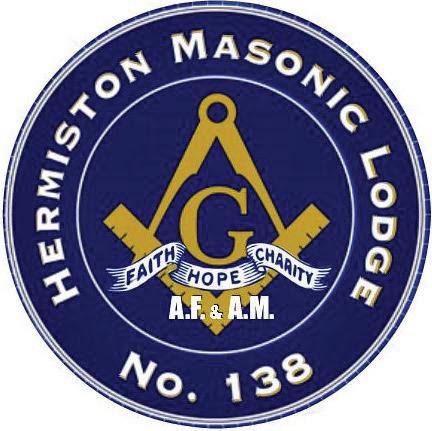
By R.W.B. Jason D. Edmiston, District Deputy No. 19
Ihave two ears, two eyes, and by the grace and design of the Almighty, one mouth. There are twenty-one district deputies serving this year which account for forty-two ears, forty-two eyes, and serving one Most Worshipful Grand Master, Timothy J. Best.
District Deputies are expected to assist the Grand Master as his eyes, his ears, and spreading his message to all Brothers throughout our beautiful and vast state. As Masons, we are taught the importance of preparing for any undertaking and the reliance we must have on our faith, our family/Brethren, and our friends. When a District Deputy delivers a message, it is as though the Grand Master is delivering that information.
Being asked to support any Grand Master as one of their District Deputies is a humbling honor and I can distinctly remember the conversation I had a couple of years ago with M.W.B. Craig A. Sipp when he asked me if I was willing to serve. The thoughts going through my head at that time, were a bit confl icted as I did have a desire to serve, yet I was trying to figure out how to do just that, while maintaining a professional work life and family balance.
What put me over the top was the oath I took to this Craft and my Brothers—we are encouraged to help aid and assist when we can. We all have busy lives and can think of
a hundred excuses of why we are too busy. One of the most common excuses I hear when traveling from Lodge to Lodge is that a Brother is too busy to attend, or too busy to assist. In my opinion, this excuse does not honor the oath all Brothers take to one another.
As I write these words, the Grand Master is 34 official visits into his year, and that does not count the numerous communications in other states, other countries, or special events. Is he too busy? Actions speak louder than words and immediately after our Annual Communication in Pendleton, M.W.B. Best was off and running. Look at his calendar and it is clear he is performing the work EVERY DAY and without excuse.
What that calendar does not show are the handful of times where the Grand Master had an opening in his schedule allowing me to exploit it. Such was the case when we met with a Brother in his house to present him with a 50-year jewel. Or the time the Grand Master and I drove to another community to present a Brother from Florida with his 60year jewel on behalf of the Grand Lodge of Florida.
We are all busy, but we must remind ourselves the importance of Faith, Hope, and Charity and we must perform the work EVERY DAY and without excuse because we took an oath to do just that.


WE MUST PERFORM THE WORK EVERY DAY & WITHOUT EXCUSE BECAUSE WE TOOK AN OATH TO DO JUST THAT.
- R.W.B. Jason D. Edmiston, District Deputy No. 19

On February 8, Beaverton Masonic Lodge No. 100 hosted an Advanced School of Instruction. Presented by W.B. Dale B. Palileo, Grand Lecturer, the Advanced School covered the second section of the Master Mason Degree ritual. Twenty six Master Masons from 9 different Lodges, including almost every Beaverton Lodge No. 100 officer attended.
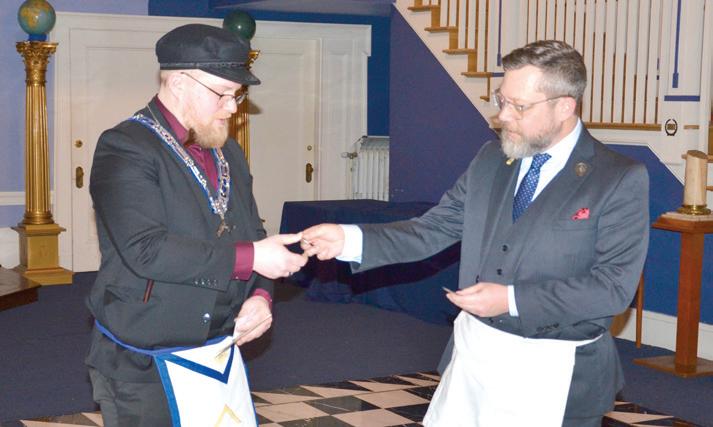
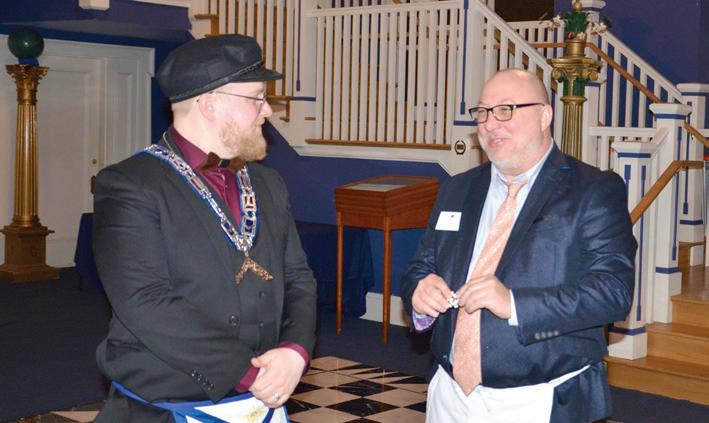
On Feb. 5, seven members of Beaverton Masonic Lodge No. 100 visited Friendship Lodge No. 160 for their Stated Communication to thank them for donating $1,000 towards the replacement of vandalized windows. On behalf of Beaverton Masonic Lodge No. 100, Worshipful Master Anderson Campbell read a thank you card to Friendship 160's Master Kevin Miller-Conley and presented him with a Beaverton Masonic Lodge No. 100 challenge coin (fittingly numbered 160) and W.B. Campbell's Master's pin.
Friendship Lodge also donated $2,000 to help replace the sump pump in the Blue Lodge kitchen at the Scottish Rite Temple. Four Blue Lodges, Multnomah No. 1, Portland No. 55, Research No. 198, Esoterika No. 227, currently meet there. To donate to this project, contact Tom Binkerd, Presonal Represenative of the Scottish Rite Portland Valley.

CELEBRATE FOUR ESTEEMED BRETHREN INDUCTEES AT THE 2025 OREGON DEMOLAY HALL OF FAME ON APRIL 12, 2025 IN PORTLAND
Visit ORDeMolay.regfox.com/hall-of-fame-2025 to register

On March 6 at Medford Lodge No. 103 R.W.B. Alexander E. Ben-Israel presented W.B. Leslie L. Lawrence with his 75-year Service Award. W.B. Lawrence gives credit for his health to our Great Creator and Dr. Mason who perform colon cancer surgery serveral years ago. W.B. Lawrence turns 104 years young on May 14, 2025.

W.B. Kristopher A. Torrey met Imperial Potentate, Imperial Sir Richard Burke, and other Imperial officers at this year’s Oriental Guide School, where camaraderie and brotherhood were at their finest. He also helped a staff member interested in becoming a Shriner by connecting him with the Grand Lodge of Florida, www.BeAFreemason.org, and a local Lodge—offering his own support along the way. In Freemasonry, there are no strangers—only Brothers we have yet to meet.



